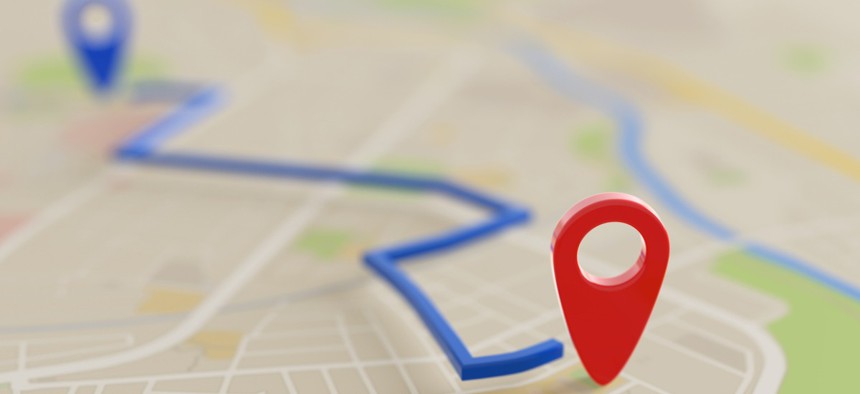What Trump Got Wrong About Protecting GPS Users and America

hkeita/iStock
The Global Positioning System has become the world’s most widely used tech utility.
In February of last year, President Donald Trump reversed long-standing administration policy when he issued Executive Order (13905, “Strengthening National Resilience Through Responsible Use of Positioning, Navigation, and Timing (PNT) Services.”
The Global Positioning System has become the world’s most widely used tech utility. America’s over-dependence on it for everything from synchronizing cellphone networks to managing power grids has caused government officials to call it “… a single point of failure” for the country.
While Trump’s order rightly warned of the dangers in over-relying on GPS, it also shifted away from years of executive branch policy. Rather than focusing on reinforcing GPS and protecting users with an alternative PNT source or sources, the order told users to protect themselves by accessing commercial services it hoped would be developed to meet their needs.
GPS signals underlie virtually every technology but are weak, easily blocked and imitated. And many studies have found a reasonable chance the system will be damaged or destroyed by solar activity within the next 50 years. These vulnerabilities pose a near-existential threat to the nation’s economy and security.
The Trump order’s warning to users—and many of its other provisions—were necessary but they were far from sufficient.
This is because the order ignored fundamental economic and security realities.
A Free Utility
America established GPS as its gift to the world in the hope that it would be widely adopted and used. Making the signal free and its specs public were wildly successful. So much so that as early as 1999 a special commission told President Bill Clinton America was likely becoming too dependent on the system.
GPS rapidly became a utility, much like a municipal water system, that serves all citizens in a multitude of ways.
Recognizing GPS’ limitations, a number of companies over the last decade have tried to develop business models providing backups and alternatives for GPS. While some have found niche markets with specialized users, just as Evian, Perrier and others have created niche markets for specialized water, no alternate PNT provider has been able to establish a broadly adopted, wide area service. They just can’t compete with the free government service that is GPS.
The order’s hope of the market providing alternatives—and that millions will be willing to pay a fee to subscribe—is a futile one. Just as few Americans see the need to purchase a regular alternate supply of household water, few see the need to buy PNT services to supplement and backup GPS. Besides, if something goes wrong with the water or GPS, it’s the utility provider’s fault, not theirs. The government will make sure the problem gets fixed.
A National Security Imperative
The impacts of a prolonged GPS outage or the system’s loss will make the COVID-19 pandemic look like a warmup act.
Our national government must prevent this as part of its core duty to provide for the common defense and promote the general welfare.
The Trump-era policy promulgated by the order focuses only on critical infrastructure and large companies that do business with the government. And it outlines a difficult and unlikely path to protect them.
It largely ignores first responders, local, state and federal agencies, the Post Office, drone operators, medium and small business – in short, about 95% of GPS users who help to make the nation function. Not protecting such a large portion of America from an outage will cripple law enforcement and other first responders, and greatly diminish our ability to support any sustained military operations.
And since adversary nations like Russia, China and Iran have terrestrial backup systems, America will not only be crippled, but we will be weakened far more than those who wish us ill.
In fact, some observers have opined America’s lack of a terrestrial backup system for GPS has already damaged our national security by providing both terrorists and enemies an exceptionally attractive target. It has certainly put America at tactical and strategic disadvantages in many situations already.
The Goal: Making the Nation Safer
Having alternative systems will make GPS satellites and signals less attractive targets and therefore safer from malicious interference. They will also make the nation safer by removing a single point of failure vulnerable to solar activity, malicious threats, and accidents.
But to do that, as many GPS users as possible must also adopt and use one or more alternate systems.
Anything that inhibits adoption, like limiting it to critical infrastructure, availability only in urban areas, access fees, and the like, reduces protection of the nation.
Even if the complicated Trump plan to coerce large companies into creating systems to protect themselves worked, it would still provide far less than America needs.
America needs what our adversaries already have: terrestrial PNT systems that are easily accessed and available to all. Systems that will work in concert with GPS when it is available and serve in its place when it is not.
Dana A. Goward is retired from the federal Senior Executive Service and is president of the Resilient Navigation and Timing Foundation.
NEXT STORY: Do You See Yourself in the Room?





